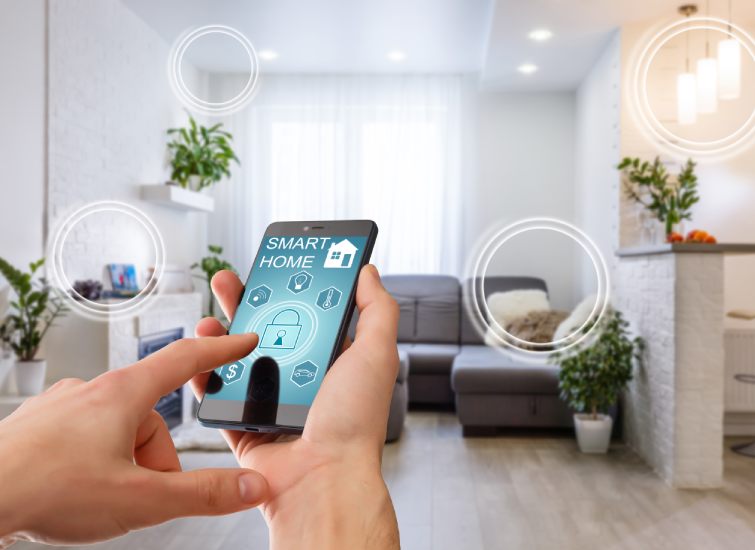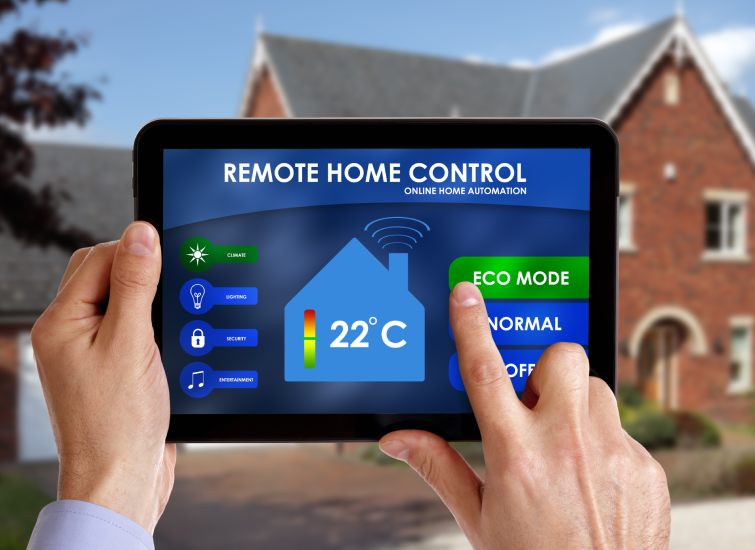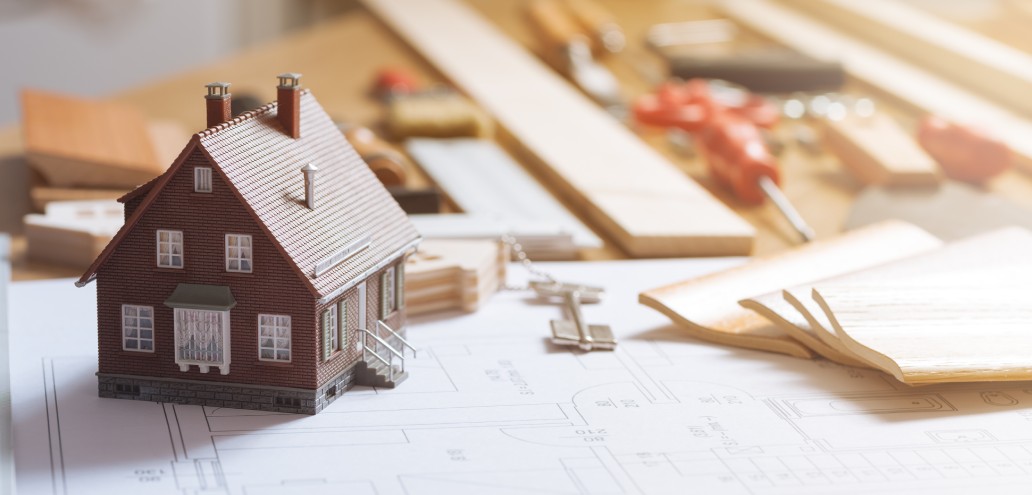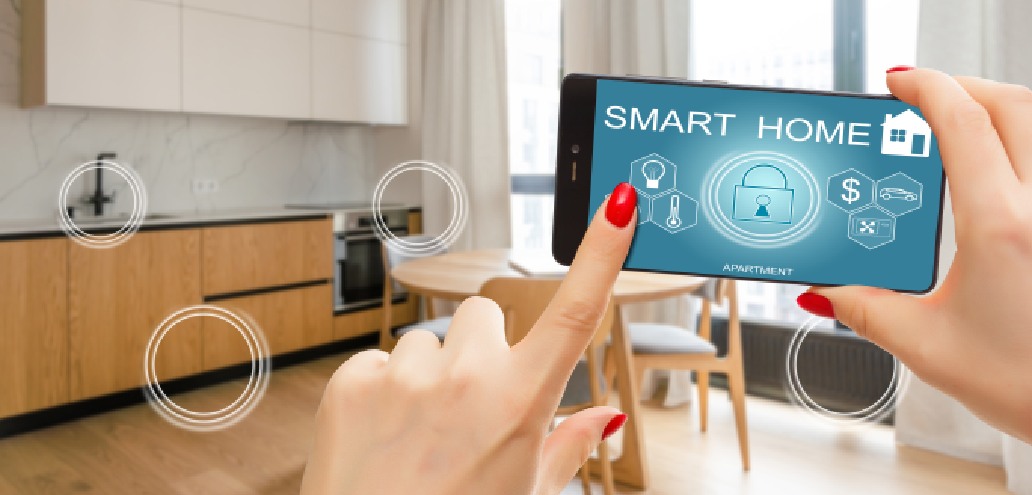It’s a fact in real estate that investors are constantly seeking innovative ways to maximize property value and attract discerning buyers or tenants. In this quest for excellence, smart home technology has emerged as a game-changer, revolutionizing how we interact with our living spaces. From intelligent thermostats that optimize energy consumption to state-of-the-art security systems offering peace of mind, smart home upgrades have become an integral aspect of modern property investment. These cutting-edge advancements not only elevate property values, but also provide unparalleled convenience, security, and energy efficiency to occupants.
As the demand for smart homes surges among tech-savvy homebuyers and renters, understanding the nuances of these upgrades becomes imperative for investors aiming to stay ahead in the competitive real estate arena.
Introduction to Smart Home Technology
Smart home technology represents the epitome of the digital age, seamlessly intertwining our living spaces with the power of advanced automation and connectivity. At its core, smart home technology empowers homeowners to control and manage various household devices and systems effortlessly.

The heart of smart homes lies in the Internet of Things (IoT), where everyday objects and appliances are embedded with sensors, software, and internet connectivity. This interconnected ecosystem allows for seamless communication and coordination between devices, all controlled through centralized platforms or even voice-activated assistants. As a result, homeowners can remotely adjust settings, monitor activities, and receive real-time alerts.
In this fast-paced world, smart home technology caters to our desire for heightened comfort and time optimization. Furthermore, it addresses energy efficiency concerns, leading to cost savings and a reduced environmental footprint.
Which Smart Home Upgrades Increase Home Value?
Smart home upgrades that increase home value encompass smart security systems, energy-efficient smart thermostats, automated lighting solutions, and integrated smart security systems. These upgrades not only enhance convenience and safety but also appeal to tech-savvy buyers, making them a wise investment for homeowners looking to boost their property’s market value.
Smart Locks and Security
Smart locks provide a robust layer of security and convenience to modern homes. With keyless entry and remote access capabilities, homeowners can monitor and control access from anywhere. Features like temporary virtual keys and activity logs enhance safety, offering peace of mind to residents and appealing to potential buyers seeking advanced security solutions.
Smart Lighting
Smart lighting systems offer unparalleled control over a home’s illumination. Through mobile apps or voice commands, users can adjust brightness, color, and schedules to suit their preferences. Energy-efficient LED bulbs contribute to cost savings while creating ambiance and increasing the property’s overall appeal.
Smart Thermostat
Smart thermostats optimize home comfort and energy usage by learning inhabitants’ behavior and adjusting temperature settings accordingly. With remote control capabilities, energy-saving features, and compatibility with smart home ecosystems, these devices appeal to both eco-conscious buyers and those seeking enhanced convenience in managing their home’s climate.
Energy Efficiency and Cost Savings

In an era of rising energy costs and heightened environmental consciousness, energy efficiency has become a paramount concern for homeowners and real estate investors alike. Smart home technology presents an array of innovative solutions to address this challenge while ensuring substantial cost savings over time.
One of the most impactful aspects of smart homes regarding energy efficiency is the integration of smart thermostats. These intelligent devices can learn occupants’ schedules and preferences to adjust heating and cooling accordingly, leading to reduced energy consumption. By optimizing temperature settings based on occupancy, weather conditions, and time of day, smart thermostats help minimize wasted energy and maintain a comfortable environment without unnecessary expenditures.
Additionally, smart lighting systems play a pivotal role in energy conservation. LED bulbs, having replaced the much-maligned curly CFL bulbs of yesteryear, consume significantly less power than traditional incandescent bulbs while offering customizable brightness and color options. With the ability to schedule lighting patterns and remotely control individual fixtures, homeowners can prevent lights from being left on unnecessarily, further reducing electricity usage.
Furthermore, smart appliances, such as energy-efficient refrigerators, washing machines, and dishwashers, contribute to long-term savings by utilizing advanced technology to optimize energy consumption.
Beyond individual device-level efficiencies, the true power of energy savings lies in the interconnectedness of smart home ecosystems. By integrating various devices and sensors, smart homes can orchestrate energy usage to achieve maximum efficiency. For instance, the system can automatically adjust lighting, heating, and cooling based on occupancy or time of day, minimizing energy waste.
Utilizing energy-efficient systems can also save investors money through tax incentives. Multiple provinces across Canada offer tax credits for property investors who install energy-efficient systems in their properties to meet certain energy standards. For more information, investors should consult their local provincial or municipal government websites.
Smart Home Trends and Attracting Tech-Savvy Tenants
As the world of technology advances at a rapid pace, smart home trends continue to evolve, shaping the way we live and interact with our living spaces. As technology continues moving forward, the future of smart homes promises unparalleled convenience and seamless integration.
One prominent trend is the increasing popularity of voice-activated smart assistants like Amazon Alexa, Google Assistant, and Apple’s Siri. These intuitive virtual companions enable users to control various smart devices with simple voice commands, making everyday tasks more efficient and enjoyable.
Another significant trend is the expansion of AI-powered smart home devices. AI algorithms allow smart devices to learn from user behavior, adapting and customizing experiences to suit individual preferences. For example, smart thermostats can anticipate temperature preferences, and smart lighting can adjust to preferred brightness levels based on usage patterns.
Interconnectivity remains a dominant theme in smart home trends, aiming for seamless communication between smart devices and promoting centralized control through smart hubs. This interconnected ecosystem enhances convenience, energy efficiency, and security while simplifying the user experience.
Investors who embrace these smart home trends stand to attract a new generation of tech-savvy tenants. The allure of cutting-edge technology and the promise of a more streamlined lifestyle resonate strongly with today’s renters. Young professionals, digital nomads, and tech enthusiasts seek residences that align with their fast-paced, technology-driven lifestyles.
Beyond the practical advantages, smart home technology enhances the overall living experience, appealing to tenants who value modernity and sophistication. The ability to remotely control lighting, temperature, and security systems via smartphones or voice commands adds a touch of luxury to everyday living.
To attract tech-savvy tenants, real estate investors should consider incorporating popular smart home devices and platforms into their properties. Highlighting the seamless integration and convenience of these features during marketing efforts can set rental properties apart from the competition.
Cost and ROI: Easy Smart Home Upgrades
When it comes to smart home upgrades, investors might be concerned about the initial costs and potential return on investment (ROI). However, many smart home improvements offer an accessible entry point for those looking to enhance their properties without breaking the bank.
Easy and cost-effective smart home upgrades often start with smart plugs and smart bulbs. These simple devices can transform standard appliances and light fixtures into smart-enabled counterparts, allowing users to control them remotely or set schedules for automation. With relatively low upfront costs, these upgrades deliver immediate benefits and can be gradually expanded as needed.
Another affordable option is installing a smart thermostat. These devices offer a high ROI by optimizing energy consumption and reducing utility bills. Additionally, some utility companies offer rebates or incentives for installing energy-efficient smart thermostats, enhancing their cost-effectiveness.

An Optimistic Notes About the Future of Smart Homes
As with all new technology, smart home tech went through a format war throughout the 2010s. Similar to VHS and Betamax, a variety of different standards were released, but not all of them were fully compatible with every platform. For example, Apple’s HomeKit could not add many devices, including smart bulbs and other tech, because it was on a different standard. To ensure compatibility, you would need to look at the label to ensure something would work with your devices.
However, with the advent of the universal “Matter” standard, this problem appears to be in the past. Most smart home tech developers have jumped onto Matter, meaning that most new devices should be fully compatible with any device moving into the future. However, until the changeover is complete, you will need to be careful with your smart upgrades to ensure that your tenant or buyers can use the technology within the home.
Final Thoughts
Embracing smart home technology opens a world of opportunities for real estate investors. Beyond the allure of cutting-edge gadgets, smart home upgrades offer tangible benefits, from increased property value and energy efficiency to enhanced security and convenience.
As smart home trends continue to evolve, staying informed and adapting to the latest innovations will remain essential for remaining competitive in the real estate market. By understanding the needs of tech-savvy buyers and tenants and strategically implementing easy and cost-effective smart home upgrades, investors can position their properties as modern, forward-thinking havens.









